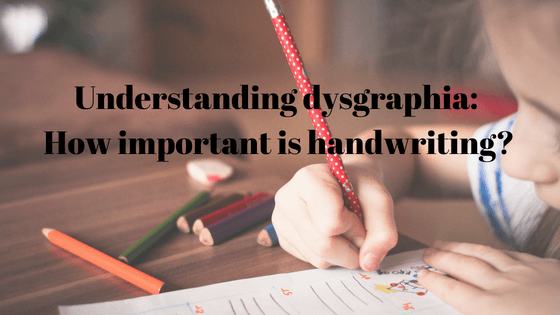Understanding Dysgraphia: Reading the Research
Written by Sandie Barrie Blackley, MA/CCC
Published on July 2, 2018
In today’s tap-and-click culture, where even toddlers seem to be device-savvy, how important is handwriting?
Very, if recent research is any indication.
Learning is complicated. It involves multiple neural pathways that interact, overlap, and support each other. As we now know, when those pathways are disrupted, a student may have difficulty processing spoken and written words. With appropriate testing, problems such as dyslexia, listening comprehension disorder, and dysgraphia can be diagnosed and a treatment plan developed.
With a classroom emphasis on printed capital letters and a growing emphasis on keyboards, some students may be missing an important step in the development of the brain’s literacy network. The hand’s movement as a student forms lowercase letters is an important part o f a complex process that includes letter-sound awareness, word recognition, and spelling.
f a complex process that includes letter-sound awareness, word recognition, and spelling.
A letter or a word is an object that can be seen, heard, spoken, and written. Neuroscience research increasingly supports the interdependence of those processes as a student learns to read. Studies conclude, for example, that “handwriting is important for the early recruitment in letter processing of brain regions known to underlie successful reading” (James & Engelhardt, 2012) and “literacy training establishes a tight functional link between the visual and motor systems for reading and writing” (Pegado, Nakamura, & Hannagan, 2014). If you want more details, Dr. Stanislas Dehaene, cognitive neuroscientist, explains the current research in his lecture, “Reading the Brain”.
With growing evidence of the connection between handwriting and literacy, it is important to address a student’s challenges with letter formation sooner rather than later. The first step is to answer the questions on the free Lexercise dysgraphia test.
If you have questions about dysgraphia, dyslexia, or other brain-based learning disorders, please review the many Lexercise online reading and writing therapy resources or contact Lexercise today.
Improve Your Child’s Reading
Learn more about Lexercise today.
Schedule a FREE
15-minute consultation




Leave a comment